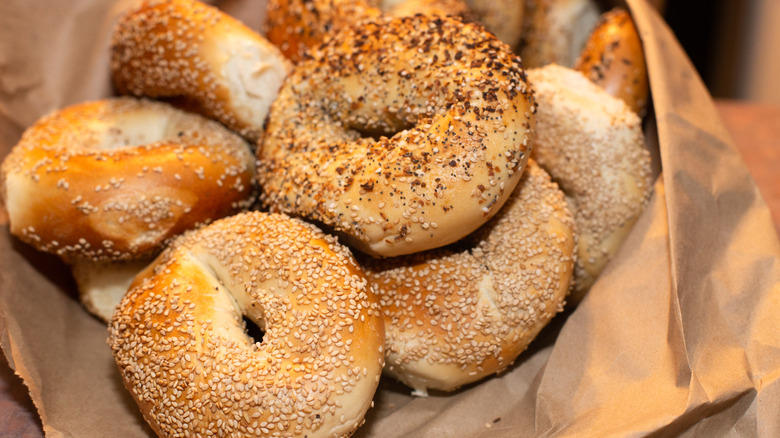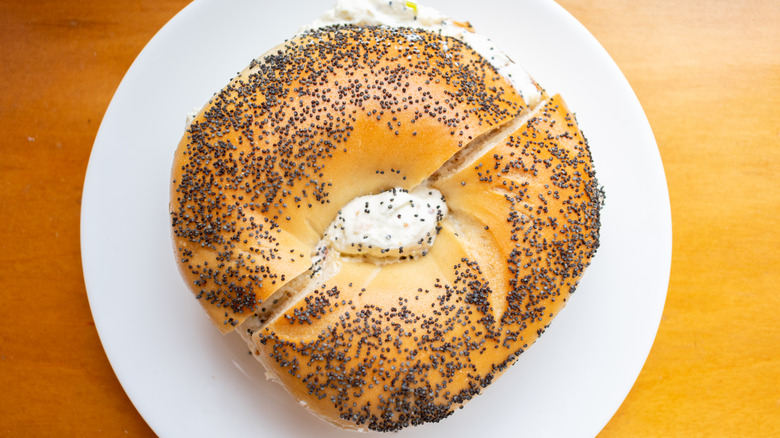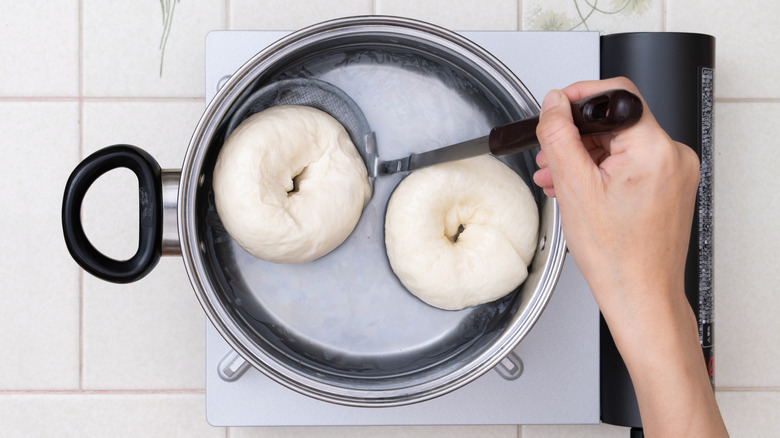The Water Myth Behind Great NYC Bagels
NYC is a town built on bagels. They've been a city staple for over a century, brought over by Polish Jewish immigrants and quickly integrated into an expected part of city life. These days, New York's got a bagel shop on nearly every corner, and a reputation for having some of the best bagels in the country. (Locals might say, definitively the best.) You'll often hear people attribute the New York City water used to make these bagels with their quality.
There's even a company, New York WaterMaker, that claims to produce water that tastes just like it came out of a Manhattan faucet, andbagel shops and pizzerias all over the country pay to use this copycat tap water in the hope of achieving NYC-level quality. But why is everyone so obsessed with the water?
New York City's water, which comes from the Catskills, is some of the softest water in the United States thanks to the fact that it's particularly low in magnesium and calcium. Harder water can produce tougher bagels by agitating the gluten in the dough, which is why New York's softer water could, hypothetically, produce a softer, chewier bagel. But that's likely not the reason why NYC bagels are so good.
The real reason NYC bagels are the best
The reason you can find the best bagels in NYC probably has more to do with how they are made, rather than the softness of the water used to make them. After being rolled, traditional NYC bagels are left to proof for a few days in low temperatures. This process, called "retarding," creates a slow ferment, which gives bagels their complex flavor profile and makes them perfect for both heavy schmears (like a sprightly wasabi edamame schmear) and beastly bagel sandwiches.
The bagels are then boiled in water spiked with malt barley for a couple of minutes before being baked. The boiling is the key, as it creates that signature thick crust with a chewy interior. (Montreal bagels, which are different but also beloved, are similarly boiled before being baked, but in water with honey in it.) When bagels are simply baked without boiling beforehand, steam will only interact with the exterior, but it will not penetrate the bagels, so they will have a drier interior and a less crispy crust. Boiling first traps in moisture to give those bagels that delicious chew.
Why aren't all bagels boiled?
Bagels were originally invented in Poland in the 17th century before being brought to the United States two centuries later through immigration. Initially a niche product made by Jewish newcomers, the bagel soon found popularity among New Yorkers of all stripes. As bagels were time-consuming and labor-intensive to make, bagel makers developed their own union, the Local 338, which highly regulated the bagel-making process. Bagel makers became highly skilled craftsmen with a lot of social and economic clout.
But things changed in the late 1950s when automated bagel-making machines were introduced to the market. These machines eliminated the longer fermentation times that gave bagels their flavor, and the boiling that gave them their crust, in favor of a quick process that was more cost-effective... even if it produced substandard bagels. Many bagel shops around the country still use automated machines that bake the bagels without boiling them. But today, you can still find many hand-rolled bagels in certain New York City bagel shops, making amazing chewy bagels from scratch, which is why many of us know that the city still has the best bagels around.



